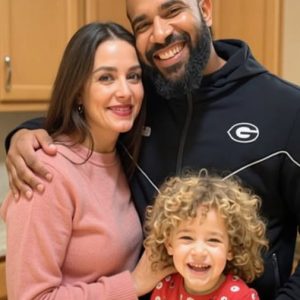I had been traveling for nearly 12 hours, jumping through terminals and fighting crowds, when I finally boarded the last leg of my flight home. All I wanted was six uninterrupted hours in a flight‑cabin — peace, repose, the kind of relief that comes when you’re boarding from fatigue and hoping for quiet. I buckled in, closed my eyes, the engine hum soothing — maybe at last I could rest.
But slowly the cabin silence broke. A little boy behind me, full of energy and wonder, peppered his mother with nonstop questions about flying, clouds, heights and pilots. At first I smiled at the innocence of his curiosity, remembering my own children’s wonder. Then came the kicks — the rhythmic thuds on the back of my seat. What began as gentle tapping escalated into a persistent disruption. My patience, already worn from travel weariness, began to fray.
I turned around. “Hey there, buddy — could you try not kicking the seat? I’m really tired.” The mother apologized, explained it was his first flight. I nodded, tried again to relax, but the kicks didn’t stop. The flight attendant intervened. Still nothing changed. Frustration took over — the tightness in my chest that signals I’m close to snapping. I could feel the moment arriving when I’d lose control.
In that instant I paused. Instead of escalation, I chose a different path. I unbuckled, knelt beside the boy’s seat, asked gently about flying. He nodded, wide‑eyed: yes, first time. He wanted to be a pilot. The craving for adventure and connection overwhelmed the annoyance. My frustration melted into empathy. We talked airplanes, clouds, engines — I explained how they work, how wings lift, how pilots communicate. He stopped kicking. His questions turned thoughtful.
The next two hours flew by smoothly. We landed. The cabin maybe changed a little, or maybe I did. The captain later invited the boy to the cockpit after landing. His mother’s eyes filled. He looked back at me shyly, aforementioned grin. “Thank you,” he whispered. And in that moment I realized: I had boarded the flight craving peace and control — but the boy reminded me of first experiences, of wonder, of the simple human connection that turns turbulence into memory.
Weeks later I found myself on another flight. Same cabin, a small pair of sneakers drummed gently on the seat before me—but the pattern changed. I didn’t sigh. I didn’t scowl. I turned, smiled, asked the boy if he was excited to fly. He nodded. His mother relaxed. Just like that, the mood shifted. I learned that empathy travels farther than frustration ever could. Annoyance is forgotten. Children don’t remember who snapped, they remember who listened, who smiled, who gave them a bit of wonder. Sometimes the smallest gestures—a smile, curiosity, patience—can turn turbulence into something unforgettable.





